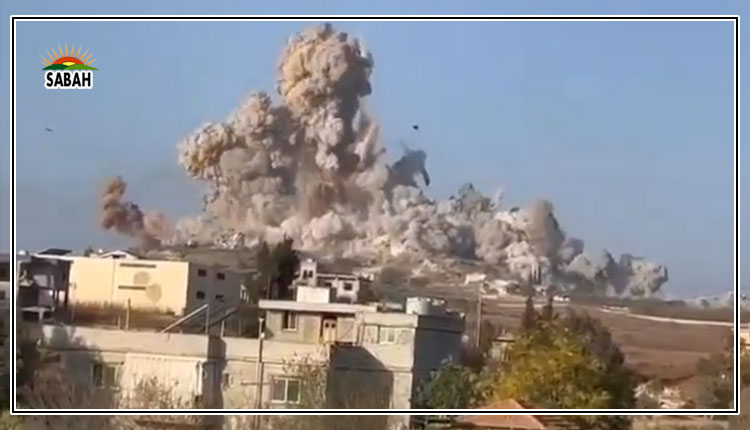Israel’s warmania could spark new challenges and tensions….Azhar Azam
An initial assessment of a UN-commissioned study has warned that if Israel’s assault on Palestine completes its third month, it could wipe off $10 billion from Egyptian, Jordanian and Lebanese GDP, pushing another 230,000 people into poverty. If the war prolongs, economic losses would hit $18 billion, triggering risks such as oil price volatility, refugee influx and pressures on public debt and fiscal space.
More than 50 years ago, the 1973 Yom Kippur War prompted Arab states to place an oil embargo on Israeli supporters including the US. This caused petrol prices to quadruple and ushered a decade of stagflation in industrial economies, wreaking havoc for consumers and economies of the industrial countries.
Dollar devaluation, spiking oil prices and an imminent recession precipitated a rift in the transatlantic alliance as Europe disassociated itself from America’s Middle East policy and stockpiled oil supplies, securing a short-term cushion. The embargo flushed Arab states with petrodollars, helping them to spend extravagantly on social and economic development; declining leverage of the US and European oil corporations, “Seven Sisters”, alongside other factors exacerbated situation for foreign oil-dependent America.
Following Hamas’s Oct 7 attacks on Israel, the deadliest since the Arab-Israeli war, economists have been sensing a déjà vu, fearing it could be a reiteration of 1970s — neither is the US reliant on the Middle East for oil like it was in 1973 nor are the Mideast countries interested in using oil as a weapon or taking harsh measures including freezing diplomatic and economic ties and blocking transfer of arms from the US bases to Israel.
But because of Israel’s inhumane offensive, world economy, still recovering from the pandemic-wrought economic shock, has again reached an inflection point since after Bloomberg Economics projection — oil prices could soar to $150 and global growth drop to 1.7%, a recession that might take about $1 trillion of global output — World Bank has echoed similar concerns.
If conflict were to escalate, said Bank’s chief economist Indermit Gill, the global economy would face a “dual energy shock for the first time in decades” from the wars in Ukraine and the Middle East with oil prices jumping to as high as $157/barrel, leading to skyrocketing inflation. Earlier banking giants at the Future Investment Forum, known as “Davos in the Desert”, in Saudi Arabia sounded alarm this conflict could dole out a heavy blow to the world economy and would mean “more insecurity”.
Following the US withdrawal from Afghanistan, asset manager BlackRock rebutted it wasn’t the 1970s, a period during which the Arab embargo along with the Iranian revolution and the Vietnam war jolted the world economy. Yet just months after this prediction, Russia’s invasion of Ukraine drove Brookings into constructing some analogy between two eras. With the Ukraine conflict grinding on, Israel’s diabolical strikes on Palestinians sharply raise the specter of the 1970s-like economic crisis, particularly if war spills over and engulfs the entire region.
The impact could be much stronger as far right-wing and ultranationalist Jews in the Netanyahu government, months before the conflict, rejected the internationally-supported idea of two-state solution and propagated Jews “have exclusive and indisputable rights” on Israel and Palestinian territories, pledging to expand settlements to occupied West Bank. Israel’s unabated targeting of Palestinians in West Bank unclothes this obnoxious, condescending mindset.
Israel’s stubborn approach to take control of Palestine’s territories and unyielding aggression against Palestinians, especially children and women, is accelerating stoking geopolitics, which had gone dormant over the US-brokered reconciliation between Arab states and Israel but never really vanished.
Even as Arab states seem divided on taking 1970s-like measures against Israel, their demand from the International Criminal Court to investigate Israeli war crimes and crimes against humanity mark a tectonic shift in regional geopolitics with economic ramifications the world over.
As war protracts, Saudi Arabia has put normalisation deal with Israel on hold and ramped up engagement with regional states and rivals such as Iran and Syria. Riyadh is also pushing back against the US in condemning Hamas; Egypt, despite its fraught relations with the armed faction and burgeoning economic relations with Israel, is hardening position on Israeli actions of forced displacements.
The conflagration of violence against civilians in Gaza and West Bank, Western double standards and US unconditional support for Israel are driving more Arab public antipathy toward Israel which could, in turn, urge their leaders to lower the boom on Israel. As the US, despite consuming itself with arming Ukraine, has diverted arms from Kyiv and is quietly sending ammunition and missiles to protect its ally, other major powers could soon be sucked in for a geopolitical showdown.
By promising “hell” to Gazans, demanding Nakba, threatening to drop a nuclear bomb on Gaza Strip, saying “North Gaza (will be) more beautiful than ever” and keeping world focus on Gaza to advance their far-right “agendas” in West Bank, Israel’s right-wingers are treading a path that could upend US-mediated peace deals and make the Middle East a geopolitical flashpoint.
In the middle of the Ukraine war, US Federal Reserve warned periods of elevated geopolitical risks historically brought about enormous negative impacts on global economy with war destroying human and physical capital, shifting resources, disrupting supply chains, delaying investment and eroding consumer confidence.
The Syria conflict through 2020 had resulted in 11.3% GDP reduction across the Mashreq region (Iraq, Jordan and Lebanon). UN Assistant Secretary General Abdullah Al Dardari, who led a recent study, drew parallels between mass displacement in Syrian and Gaza wars, revealing that the latter suffered same level of destruction in just one month what the former endured in five years.
As Dardari warned war impacts could reverberate in the neighbouring countries, economic implications of such a development coupled with Israel’s unbridled enmity for Palestinian children and women would intensify Arab public abhorrence toward the Jewish state, forcing their leaders to cede their ambivalence and do something concrete to stop Israel from killing civilians.
While Arab leaders won’t respond with 1970s-like embargoes, even a symbolic action will suffice to spark new challenges to world economy, fuel more divisions internationally and exacerbate geopolitical tensions. By succumbing to hawkish elements, sticking to warmania, rejecting ceasefire calls and continuing cascading attacks on civilians, the Netanyahu government is abetting this crisis to pop up.
Courtesy The Express Tribune, December 23rd, 2023.












